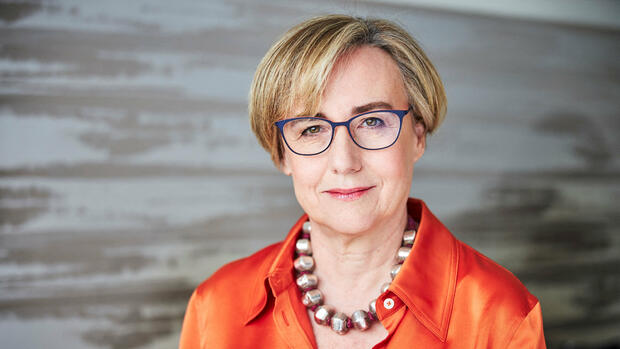The new Vodafone boss is under pressure to act. Major shareholders are demanding improvements in earnings.
(Photo: via REUTERS)
London British telecommunications group Vodafone and Hong Kong-based CK Hutchison (Three) have agreed to merge their UK mobile divisions after months of negotiations. Vodafone will hold a 51 percent majority in the joint venture.
With almost 28 million customers, Vodafone/Three will become the market leader in Great Britain and will soon be competing with British Telecom (BT) with the EE brand and Virgin Media O2, a joint subsidiary of the US group Liberty and the Spanish Telefónica. The new company is to be managed by Ahmed Essam, previously head of Vodafone UK. The stock exchange reacted to the news with a price increase of 3.5 percent for Vodafone.
The British group reserves the right to fully take over the joint venture after three years should the value of the joint venture reach 16.5 billion pounds (19.3 billion euros at today’s exchange rate). The company is currently valued at around £15 billion.
With this option, the two companies want to eliminate security concerns in Great Britain. Conservative parliamentarians in particular criticize Hutchison for being too close to China. The former leader of the Conservative Party, Ian Duncan Smith, has therefore asked the authorities to block every transaction. He fears that the merger could leak sensitive information about Britain’s infrastructure into Beijing’s hands.
Vodafone has a number of security-related government contracts. The “National Security and Investment Act” passed in 2012 would give the government in London the power to block the deal.
Antitrust authorities will examine merger
As a result of the merger, the number of providers on the British market will be reduced from four to three, which market analysts believe will lead to an intensive investigation by the British antitrust authorities. “The Competition and Market Authority (CMA) will take a close look at the merger,” Professor Suzanne Rab, a competition expert at Oxford University, suspected before the project was announced.
The new Vodafone boss Margherita Della Valle described the merger as “great for the customers, great for the country and great for the competitor”. The Italian only took over the management of the group at the end of April and is under enormous pressure from the shareholders to improve the meager result in the mobile phone business.
The two companies want to invest around eleven billion pounds (12.9 billion euros) in the development of the mobile network of the fifth generation (5G) over the next ten years. According to Della Valle, the transaction is a “decisive step” for Vodafone in its home market and a “vote of confidence” for Great Britain.
Vodafone and Hutchison’s British subsidiary Three are the two smallest providers in the British market and have struggled in the past to shoulder the high investment costs while keeping profit margins stable in the tough price war.
“Three and Vodafone currently do not have the necessary scale to earn their cost of capital,” writes Canning Fok, co-managing director of CK Hutchison, in the merger documents to the London Stock Exchange. It has long been a challenge for Three to invest and be competitive.
The companies Vodafone and CH Hutchison (Three) want to merge their mobile division in Great Britain.
(Photo: Bloomberg)
The investment program is to be paid for, among other things, with new debt of six billion pounds. Vodafone will borrow £4.3bn for this, with Three UK taking on the rest of £1.7bn. The merger is expected to result in annual savings of £700m over five years for the two companies.
Unions fear massive job cuts
In the coming months, the CMA’s anti-trust authorities will decide whether the merger will go ahead. According to Rab, they will have to weigh the advantages of a larger network, lower costs and greater efficiency against possible restrictions in competition.
“The fact that the number drops from four to three is no reason to reject the merger,” said the Oxford professor. A similar consolidation has also taken place in the Netherlands.
In addition, there is opposition from the British trade union Unite, which fears job cuts after the merger. Vodafone announced last month that it would cut 11,000 jobs worldwide.
In 2016, the EU antitrust authorities had rejected a merger of Three with the Telefónica subsidiary O2 for competition reasons. At that time Great Britain was still a member of the European Union.
More: New Vodafone boss Della Valle cuts 11,000 jobs

